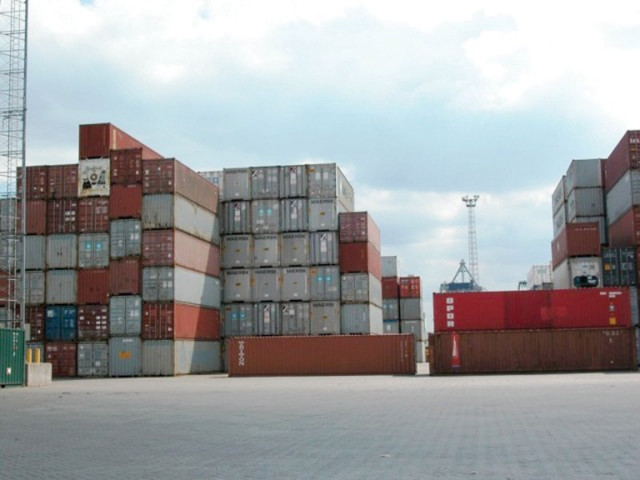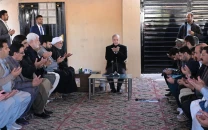Export Development Fund: Let it go
Rs19b, accumulated since 2006, is lying unspent with finance ministry.

Export Development Surcharge is levied on all exports at 0.25% of export proceeds and was imposed in 1999 to strengthen and develop infrastructure. PHOTO: FILE
Since 2006, the Ministry of Finance has accumulated Rs19 billion on account of Export Development Fund (EDF), lying unspent in its kitty. This is contravention of Export Development Fund Act Amendment 2005, under which the Ministry of Finance is obliged to transfer the amount collected under Export Development Surcharge to the Ministry of Commerce in the following year.
Export Development Surcharge is levied on all exports at 0.25% of export proceeds and was imposed in 1999 to strengthen and develop infrastructure for promotion of exports.
To date, the business community has contributed around $600 million under this surcharge. The Ministry of Commerce has not released any public report on the use, output and results of this contribution.
The business community remains suspicious about the appropriate usage of the fund. According to a news report, the president of the Sialkot Chamber of Commerce and Industry has alleged that EDF proceeds have been used for general infrastructure development instead of boosting exports.
According to an independent report on EDF, in many cases, as high as 80-90% of the project budget goes to salaries and administrative costs. Take for instance establishment of a gems and jewellery (diamond cut and polish) training institute, a project proposed in the 62nd meeting of the board of administrators of EDF Fund held in 2013.
Total budget of the project is Rs27.292 million, of which Rs21.792 million (ie 79.8% of the total cost) is for administration.
Under EDF, businesses largely propose projects such as exhibitions, marketing campaigns, establishment of trade offices and alike. These projects are important in providing a capable workforce or facilitating export promotion activities. However, the impact of such projects is difficult to quantify because of non-tangibility of output.
Typically, projects are approved by the board of administrators, which is chaired by the minister of commerce. The business community is represented on the board through presidents of business associations but the control of the fund lies with the ministry.
The report on EDF mentions scores of incidents of misallocation of funds, particularly on account of subsidy and freight reimbursement to ghost exporters. According to a news story, the FIA has registered 50 cases involving Rs5 billion paid to phony companies during the previous government’s tenure.
The current structure of the fund creates a lot of room for political and bureaucratic discretion. A recent example is allocation of funds for the Saarc Chamber of Commerce and Industry, which is not a direct contributor to the fund, which raises questions over the legitimacy of this decision.
Despite the initiatives and allocation of funds through EDF, Pakistan is losing its market share year after year, which is increasing the share of its competitors including India and Bangladesh. Thus, EDF has largely failed to serve the purpose for which it was enacted.
New setup
Given the systematic incentives built in the structure for misallocation and misappropriation, the government should ponder over an amendment in the Act to abolish the board of administrators and replace it with a new non-profit company under Section 42 with the exclusive mandate of export development. Its board of directors should comprise representatives from the private sector, government and academia whereas the managing director should be drawn from the private sector on the basis of his professional expertise.
After the new setup, proposals for use of the fund on a competitive basis should be sought from the private sector including business associations. These proposals should be carefully evaluated for their contribution to boosting the country’s exports.
The most important lesson is that the government does not, and cannot have, adequate knowledge to make reliable decisions on priorities of different sectors. Therefore, such decisions on allocation of capital should best be left to the market forces.
The writer is the founder and executive director of Prime Institute, a public policy think tank based in Islamabad
Published in The Express Tribune, March 3rd, 2014.
Like Business on Facebook, follow @TribuneBiz on Twitter to stay informed and join in the conversation.



















COMMENTS
Comments are moderated and generally will be posted if they are on-topic and not abusive.
For more information, please see our Comments FAQ